British Broadcasting Corporation
White City, 201 Wood Lane,
London, W12 7TS
020 8743 8000
Editorial Complaints Unit
Email: ecu@bbc.co.uk
27 January 2012
"The Conspiracy Files 911 Ten Years On Entertainment Letter"
(This is the "subject" title of Mr Tregears letter summarising my complaints)
(This is the "subject" title of Mr Tregears letter summarising my complaints)
Dear Mr Yates
Thank you for your letter of 22 January regarding The Conspiracy Files: 9/11 Ten Years On which was broadcast on 9 September 2011. I’m sorry you’re dissatisfied with the BBC’s response to your complaint. We’ll now set our own investigation in motion which will include a review of the correspondence so far, a discussion with the programme-makers and any other enquiries that might be appropriate.
As you may know, the remit of the Editorial Complaints Unit is to investigate cases where there may have been a serious breach of the standards expressed in the BBC’s Editorial Guidelines (http://www.bbc.co.uk/guidelines/editorialguidelines/). The BBC’s Editorial Values and the Editorial Guidelines are rooted in the BBC’s Royal Charter and the Agreement which accompanies the Charter (see Section 1.3 of the Editorial Guidelines). I note that you have referred to the Charter but I should explain that it is the standards within the Editorial Guidelines which programme-makers are expected to observe and therefore I will judge your complaint against those standards.
Our usual practice is to set out the main points of complaint at this stage in order to ensure that we have a full understanding of the issues and have identified the most relevant sections of the guidelines against which we will consider your complaint. In this case, I have based my summary of your complaint on the numbered points (and others) included in your letter to us which begins with the heading “A brief overview of the BBC abuse of the Charter”. I will aim to summarise each aspect of your complaint briefly (avoiding repetition where possible) and occasionally using additional sub-numbers, but I will bear in mind all the relevant correspondence and evidence when reaching a final conclusion on the merits of your complaint. I have taken as a given your over-arching concern that the programme “was a fiction peddled as documentary fact” because it “deliberately ignored, obscured and confused the most pertinent issues and facts concerning the official account of what happened”. I will therefore consider
whether the overall impression of the programme led to a breach of the guidelines on impartiality.
1. The programme did not include contributions from survivors, first responders, relatives of victims or from academics, scientists, architects etc who have been critical of the official version of events. The programme repeatedly denigrated such people as “conspiracy theorists”.
2. The programme cherry-picked information and hypotheses which support the official version of events and included contributors “tied to the establishment by money, career and contract”. It included facts and conclusions which have been withdrawn by the National Institute of Standards and Technology (NIST) and as a result the programme presented information the official bodies no longer support.
a. The programme used computer simulations which were not based on peer reviewed data.
b. The programme dismissed a published scientific paper by Niels Harrit because it was “irrelevant” and had not been challenged in peer review.
4. The programme excluded writing and thinking in answering the question “what makes conspiracy theories so persist and so powerful”.
5. The programme ignored evidence of the US government’s involvement in previous conspiracies.
6. The programme acknowledged other US Government conspiracies (Watergate, Monica Lewinsky, WMD/Iraq) but said questioning of the official version of events in relation to 9/11 was “out of bounds”.
7. The programme misrepresented key facts, including:
a. The programme referred to a “routine military exercise” but the authorities now admit there was an unprecedented number of manoeuvres and exercises underway.
b. It was incorrect to say the FBI and CIA “insist they had no specific warnings of the hijackings on 9/11”. Using the word “specific” obscured the known situation that this information was known to the various agencies.
8. The frequent repetition of the phrase “conspiracy theory” was used subliminally to condition the audience to support the UK and US government policy.
9. The programme featured 13 contributors who supported the official version of events and 4 who disagreed. This was evidence of lack of balance.
10. The programme did not include contributions from relevant informed experts (such as Thomas Kean, Bob Kerry et al) who have questioned the findings of official investigations and inquiries.
11. The inclusion of a CIA agent swearing allegiance at the start of the programme gave the misleading impression that the CIA is above reproach when it is accepted that the agencies activities are “absolutely anchored in immorality and unethical behaviour”.
12. Professor Niels Harrit was discredited as a witness and he was not given an opportunity to respond to criticism of his paper on the collapse of Building 7. This was evidence of lack of balance.
13. The programme consistently stated the official version of events as fact. This was evidence of lack of balance.
14. It was inaccurate to say that all that remains of 9/11 is consigned to a hanger in New York state”. Steel girders have been recycled and much of the building was pulverised into dust.
15. It was inaccurate to say that “When air traffic control tried to find them [hijacked planes] there were like 4500 blips that looked identical across the United States”. All four planes should have been identifiable.
16. The programme was misleading when it said military equipment and procedure “was designed and their procedures were designed to look out over the ocean, their equipment wasn’ t designed to look inside the United States”.
17. The programme included a contribution from Abolhassan Astaneh who was paid by the US government to draw up a report on the structural failures of the Twin Towers. His hypothesis about the structural integrity of the towers being dependent on thin load bearing walls has been discredited by Architects and Engineers for 911 Truth and others. Other views should have been included to achieve due impartiality.
18. Richard Fruehan and Chris Pistorius were included in the programme but had a vested interest in the official version of events. This was not made clear.
19. The programme did not explain that the Twin Towers contained 47 uprights intermeshed with steel beams accredited to withstand 2000 degrees. This was misleading.
20. The programme did not report that there were explosions in the basements of the towers prior to the planes hitting and afterwards while fire crews were on site.
21. The explanation provided by the programme as to why the towers collapsed was presented as fact but the cause is disputed and this was not reflected.
22. The programme did not mention the failure of the missile batteries protecting the Pentagon or the fact no CCTV footage from the area was released by the pentagon and other footage was confiscated by the FBI.
23. The programme did not mention that data from the black box of Flight 77 has been analysed by independent experts and it does not match the official explanation.
24. The programme included a contribution from Allyn Kilsheimer without making it clear that he “has made a good living out of his close association with the Pentagon and Dept of Defense”.
25. The programme did not make it clear that the Pentagon was a crime scene in US criminal law and so no wreckage should have been touched or removed.
26. The programme included a contribution from Jean O’Connor of the FBI in which she denigrated those who question the official version of events. This was evidence of a lack of due impartiality.
27. The programme did not include any of the various theories about the collapse of the towers which questioned the original NIST evaluation.
28. The programme misrepresented the findings of the RE Lee Group.
The relevant guidelines are therefore those on Accuracy and Impartiality. I won’t transcribe all the sections but I think it is worth referring you to the main sections as follows:
The BBC is committed to achieving due accuracy. This commitment is fundamental to our reputation and the trust of audiences, which is the foundation of the BBC. It is also a requirement under the Agreement accompanying the BBC Charter.
The term “due” means that the accuracy must be adequate and appropriate to the output, taking account of the subject and nature of the content, the likely audience expectation and any signposting that may influence that expectation.
Therefore, we do all we can to achieve due accuracy in all our output, though its requirements may vary. The due accuracy required of, for example, drama, entertainment and comedy, will not usually be the same as for factual content. The requirements may even vary within a genre, so the due accuracy required of factual content may differ depending on whether it is, for example, factual entertainment, historical documentary, current affairs or news.
Accuracy is not simply a matter of getting facts right. If an issue is controversial, relevant opinions as well as facts may need to be considered. When necessary, all the relevant facts and information should also be weighed to get at the truth.
Principles:
We must do all we can to ensure due accuracy in all our output.
All BBC output, as appropriate to its subject and nature, must be well sourced, based on sound evidence, thoroughly tested and presented in clear, precise language. We should be honest and open about what we don’ t know and avoid unfounded speculation. Claims, allegations, material facts and other content that cannot be corroborated should normally be attributed.
The BBC must not knowingly and materially mislead its audiences. We should not distort known facts, present invented material as fact or otherwise undermine our audiences’ trust in our content.
On Impartiality, the guidelines say:
Impartiality lies at the heart of public service and is the core of the BBC’ s commitment to its audiences. It applies to all our output and services - television, radio, online, and in our international services and commercial magazines. We must be inclusive, considering the broad perspective and ensuring the existence of a range of views is appropriately reflected.
The Agreement accompanying the BBC Charter requires us to do all we can to ensure controversial subjects are treated with due impartiality in our news and other output dealing with matters of public policy or political or industrial controversy. But we go further than that, applying due impartiality to all subjects. However, its requirements will vary.
The term “due” means that the impartiality must be adequate and appropriate to the output, taking account of the subject and nature of the content, the likely audience expectation and any signposting that may influence that expectation.
Due impartiality is often more than a simple matter of “balance” between opposing viewpoints. Equally, it does not require absolute neutrality on every issue or detachment from fundamental democratic principles.
There is also a section on Breadth and Diversity of Opinion:
Across our output as a whole, we must be inclusive, reflecting a breadth and diversity of opinion. We must be fair and open-minded when examining the evidence and weighing material facts. We must give due weight to the many and diverse areas of an argument.
Breadth and diversity of opinion may require not just a political and cultural range, but, on occasions, reflection of the variations between urban and rural, older and younger, poorer and wealthier, the innovative and the status quo, etc. It may involve exploration of perspectives in different communities, interest groups and geographic areas.
Impartiality does not necessarily require the range of perspectives or opinions to be covered in equal proportions either across our output as a whole, or within a single programme, web page or item. Instead, we should seek to achieve “due weight”. For example, minority views should not necessarily be given equal weight to the prevailing consensus.
Nevertheless, the omission of an important perspective, in a particular context, may jeopardise perceptions of the BBC’ s impartiality. Decisions over whether to include or omit perspectives should be reasonable and carefully reached, with consistently applied editorial judgement across an appropriate range of output.
I should add that the Editorial Standards Committee of the BBC Trust has already carried out a review of the original version of this programme which was broadcast in 2007. It set out its finding in November 20071. As you may know, the Trust is the regulator of the BBC and has approved the BBC’s Editorial Guidelines. It is also the final arbiter of complaints which raise potential breaches of the BBC’s editorial standards. I am therefore bound by the conclusions of the Editorial Standards Committee and so where issues you have raised about the revised version of this programme have already been addressed by the Trust (and in particular those areas which have not been edited from the original), I do not propose to include a specific response in my finding.
1 http://www.bbc.co.uk/bbctrust/assets/files/pdf/appeals/esc_bulletins/nov07.pdf
5
If you have any comments on this summary of your complaint and the relevant guidelines, please let me have them by 10 February, so that I can take them into consideration in the course of my investigation. If there are any issues of concern which I have not covered I would be grateful if you could let me know within the above timeframe because we can only consider new points of complaint made at a later stage under exceptional circumstances. I will aim to let you know the outcome of my investigation by 16 March.
Yours sincerely
Colin Tregear
Complaints Director
6
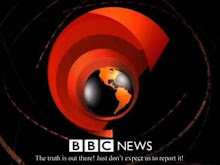

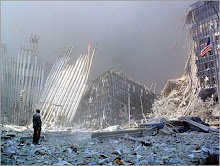
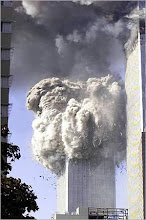
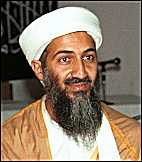
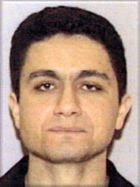

No comments:
Post a Comment